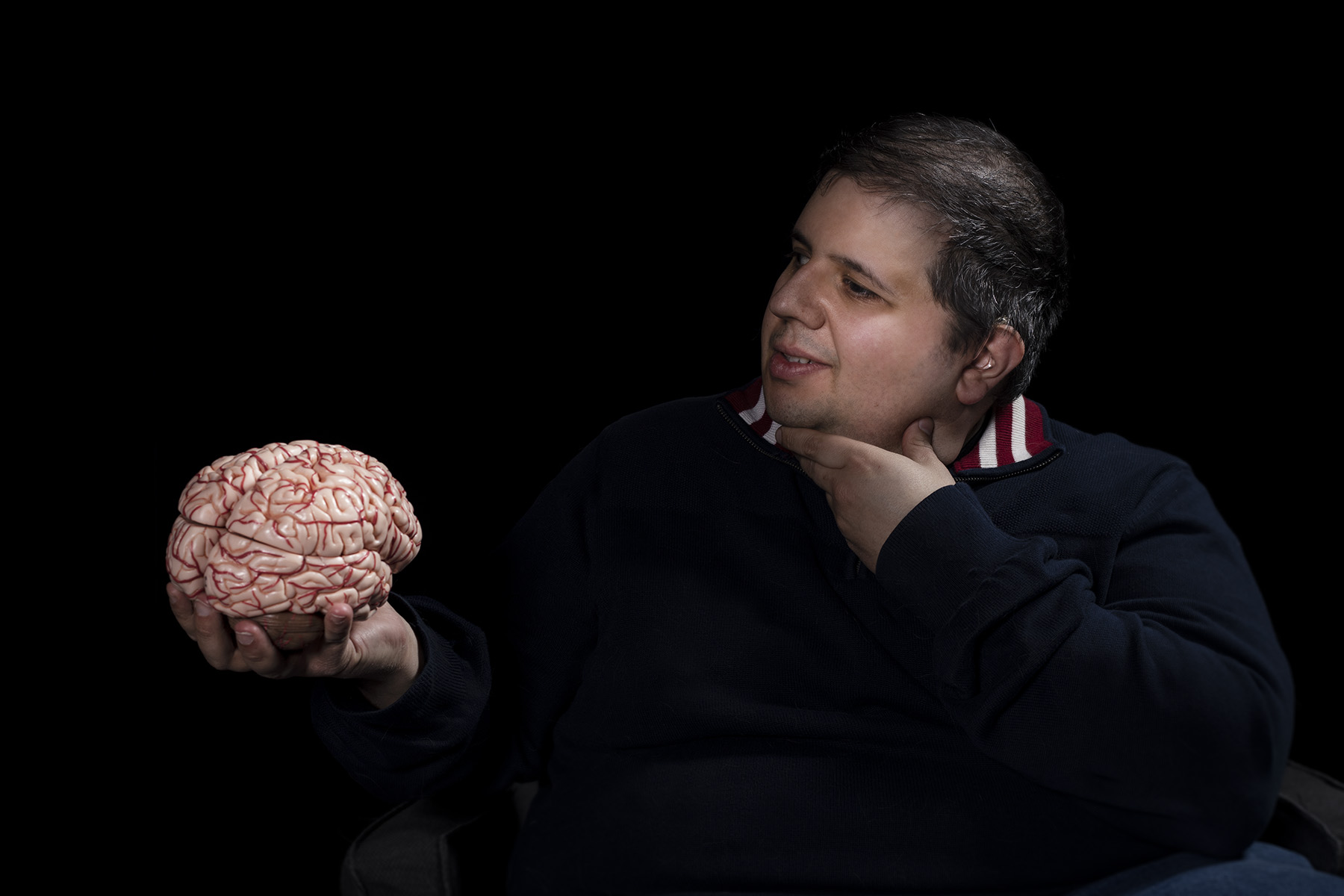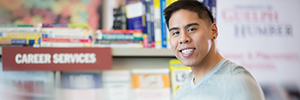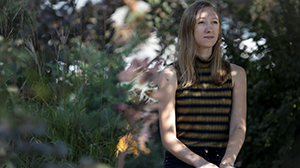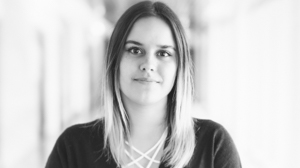- Future Students
- Current Students
- Faculty
- Staff
- Alumni
- Others
Psychology student presents to Canadian Psychological Association and the Cognitive Science Society

University of Guelph-Humber Psychology student Christopher Schiafone recently presented research on making science education more accessible in the form of two separate virtual workshops for the Canadian Psychological Association and the Cognitive Science Society.
Titled “Making Science Accessible: A Co-Design of Nonvisual Representations for Visually Impaired Students,” Schiafone’s interactive workshop invited attendees to discuss and design cross-sensory representations of scientific content specific to Psychology and Neuroscience.
Schiafone was originally going to present at the 81st Annual CPA Convention in Montreal – and it would have been his second consecutive year doing so – before it was cancelled as an in-person event due to the pandemic. For Schiafone, shifting the experience he had planned online required some creativity.
In the workshop, Schiafone – who is completely blind with some light perception – and his co-facilitators first led an introduction to inclusive design principles. Then, they guided participants through a hands-on co-design activity that tasked them with designing a tactile/cross-sensory representation of either the brain or a neuron using everyday craft materials.
Schiafone’s larger goal? To highlight the accessibility issues that can make science education extremely difficult for persons of vision loss.
“I’m trying to make psychological content more accessible to those without vision. And I want to educate people based on challenges I’ve had as a student in Psychology,” Schiafone said.
“I wanted people to think about what they would do if they had a blind student in their class. How could they show that student what they have on a PowerPoint slide? If it’s a diagram of the brain, how are you going to show that to a blind student?”
Overcoming obstacles
Although Schiafone was disappointed it wasn’t possible to present in person, he was glad to see that his workshop for the Cognitive Science Society was attended by professionals from all over Canada, the United States and Europe, while his CPA presentation had a diverse audience of psychologists, Psychology faculty, researchers and graduate students.
His most recent research, conducted as part of his fourth-year thesis course at the University of Guelph-Humber, was an Interpretive Phenomenological Analysis (IPA) study using sighted blindfolded participants. Working under the guidance of Dr. Marta Wnuczko and Psychology Assistant Program Head Dr. Adam Sandford, the goal was to determine whether participants preferred to use raised line drawings, an audio text description using screen-reading tech, or a 3D model.
He completed that thesis project in April and it wasn’t an easy road to get there. He always knew he wanted to complete his undergraduate thesis, despite the challenges of having to complete the two levels of quantification in psychology courses as a prerequisite.
It was a course that relied heavily on a textbook packed with graphs, diagrams and charts.
“Because I couldn’t see any of that stuff, it was very, very challenging,” Schiafone explained. “The professor who teaches that course, Dina Logan, she was fantastic. Her ongoing support and assistance was greatly appreciated.
“I was very, very fortunate to have a lot of support both from the Psychology department, my professor and Accessible Learning Services at Humber to get through these classes. By some miracle, I made it through.
“Yes, there were times I was frustrated, but I advocated for myself, other people at the school advocated for me, and my professor spent lots of time with me explaining concepts and things I couldn’t see in classes. And all that together basically pulled me through.”
Broader goals
Schiafone plans to continue on to get a Master’s degree and further enhance his research experience once he graduates from UofGH. He’s going to continue to find ways to enlighten those in education about the accessibility issues and other hurdles that those with sight might overlook.
Ultimately, he wants to use his experience to create a better future for people with sight impairment who want to study science.
“I’ve always got the idea that nothing is impossible. As a person with a disability, I believe firmly that we can do whatever we put our mind to, but the supports and things that are available to us are very important,” Schiafone said. “It’s going to be hard. You’re going to want to give up. But if you truly want that goal, don’t let these things get in your way.
“My overall goal with doing all this work is to try to make Psychology as a field and as a discipline in University more accessible, specifically for people with sight impairment.”







